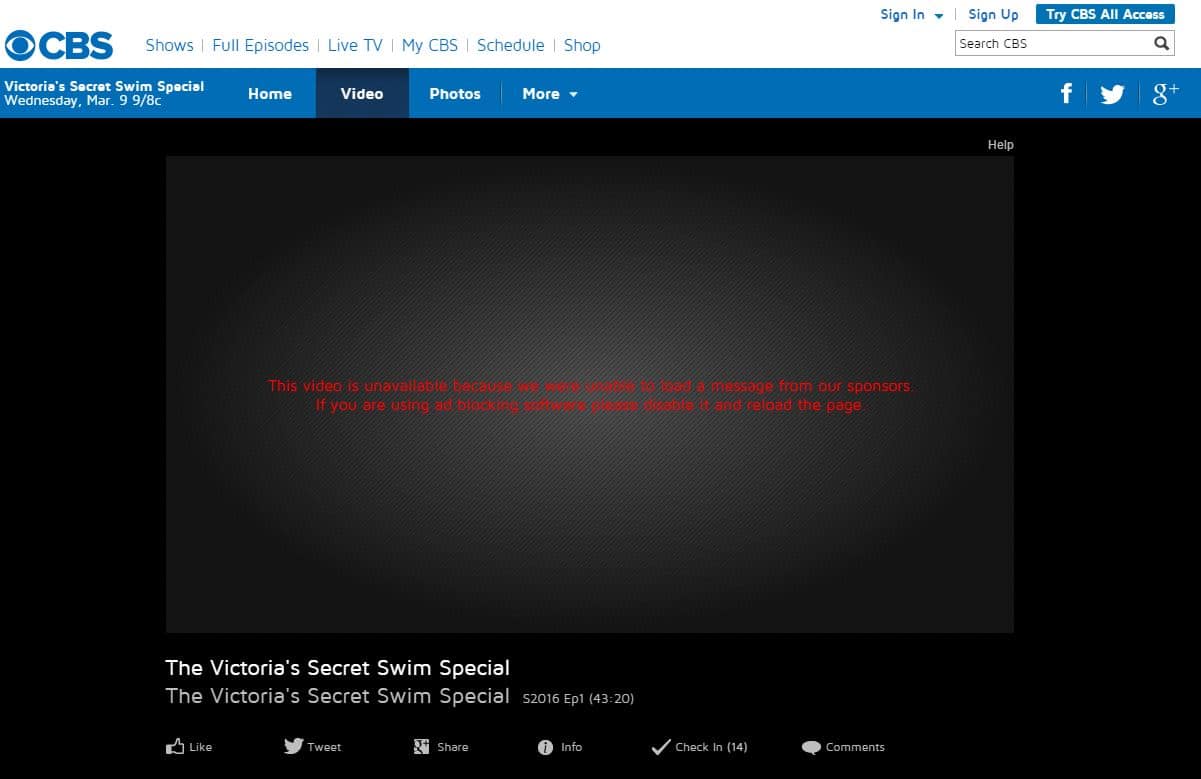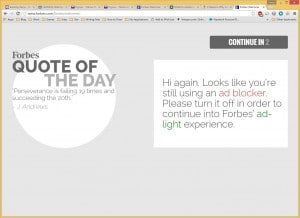Victoria’s Secret Swim Special not available to Ad Blockers
If you are like many of internet users, you probably use an Ad Blocker. If so you have unwitting joined what I call the Ad Blocking Arms Race. This arms race is extremely interesting. Unlike real war, this arms race doesn’t include a body count, making it extremely interesting and fun to watch. I keep an eye out to see how this arms race progresses.
Ad Blocking has caused a significant hit to the bottom line of many Ad-sponsored websites. It is well-known that Forbes.com has taken a stand against Ad Blockers. Their actions have made a clear statement:
“Our content is not free, it is paid for and sponsored by ads. Block those ad, and you will be blocked from our content.”
I previously discussed 6 Reasons Why Ad Blocking Is A Short Term Fad, even though I not against ad blocking. In this article, I discuss how soon, almost no site will work unless you disable your Ad Blocker. If that happens, Ad Blockers will be rendered quite ineffective.
Today, CBS joined Forbes.com in the Ad Blocking Arms Race, taking a stand and fighting back against Ad Blockers. If you try to watch free CBS content, then Ads are required. Those who go to CBS.com to catch up on shows that they might want to catch up on, such as Victoria’s Secret Swim Special, will receive the following denial:
“This Video is unavailable because we were unable to load a message from our sponsors. If you are using ad blocking software please disable it and reload the page.”
CBS is giving a similar message as Forbes.com. Here is what it looks like when you go to their web site and try to watch the Victoria’s Secret Swim Special with an Ad Blocker enabled. This is not subtle and makes it clear that the Ad Blocker is not acceptable on their site. Instead of feeling like an ad blocker is effective, this makes it feel like the Ad Blocker simple got in the way.
Turning off Ad Blocking is easy enough, but that is not the interesting part of this. The interesting part of this is the effect this has on the Ad Blocker Arms Race. As a techie myself, I probably won’t stop using an Ad Blocker, but many average users will soon be annoyed enough by these constant denial of content to Ad Blockers, that they may stop using Ad Blockers altogether. It may take time as they may not uninstall an existing Ad Blocker, but next time a user switches to a new device, might they simply forgo installing an Ad Blocker. If that happens, Advertisers will soon win this arms race.
However, in an Arms Race, there are two sides who continually escalate. Content providers, who are sponsored by ads, are just starting to fight back. These are their first punches.
Besides the ubiquitous feature to disable the Ad Blocker for a certain site, what is going to be the Ad Blocker’s response? Are they going to try to disguise themselves somehow? Technically, that seems difficult.
With so many sites being funded primarily by ads, are Ad Blockers really good for the Internet? There are multiple points of view. On one side, Ad Blockers are having a small but positive effect on the quality and legitimacy of ads. However, already some sites are shutting down, or if not shutting down, going inactive, do to Ad Blockers. Others are simply blocking users who have Ad Blocking software enabled.
All I can say is, this: The battle is on, and this arms race is fun to watch.




